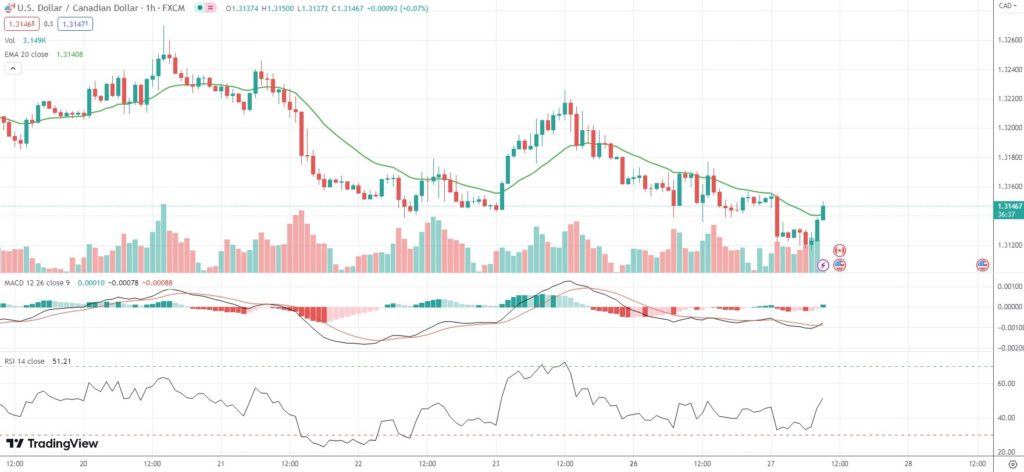Key points
- USD/CAD trades near fresh 41-week low of 1.3117
- Loonie traders look to Canadian CPI data for May
- US data string eyed for clues on future policy tightening
- Oil price surge additionally supports Canadian Dollar
USD/CAD was hovering above a fresh 41-week trough on Tuesday, as market players eyed incoming US and Canadian macro data that could determine the timing of more interest rate hikes.
Tuesday’s US data string includes durable goods orders for May at 12:30 GMT, new home sales for May at 14:00 GMT as well as the consumer confidence survey results for June by The Conference Board research group at 14:00 GMT.
Markets are now pricing in a 72% chance of a 25 basis point interest rate increase at the Fed’s meeting in July, but the rate trajectory afterwards is not that clear.
“We will have many U.S. indicators, which I think will be mixed, so there will be no strong momentum, at least today,” Masafumi Yamamoto, chief currency strategist at Mizuho Securities, was quoted as saying by Reuters.
“Two more rate hikes are not fully priced in the market. If the U.S. economic data comes out on the strong side, then further pricing in for the two rate hikes will push up the dollar.”
Meanwhile, CAD traders will be paying close attention to Canadian CPI inflation figures due out at 12:30 GMT. The headline annual consumer price inflation is expected to decelerate to 3.4% in May from 4.4% in April.
Core CPI inflation is expected to slow down to 3.9% in May from 4.1% in April.
Futures markets are pricing in an almost 65% chance that the Bank of Canada will deliver another interest rate hike at its policy meeting on July 12th. Earlier in June, the central bank raised its benchmark policy rate by 25 basis points to 4.75%, the first tightening since January.
As of 9:22 GMT on Tuesday USD/CAD was inching down 0.04% to trade at 1.3147. During the early phase of the European trading session, the major Forex pair went down as low as 1.3117. The latter has been the pair’s weakest level since September 13th 2022 (1.2954).
Along with recent US Dollar weakness, the loonie drew support from a surge in the price of Oil, a major Canadian export. WTI Crude Oil rose at the start of the week, as market players weighed global demand growth concerns against possible supply disruptions that could intensify due to political instability in Russia.






